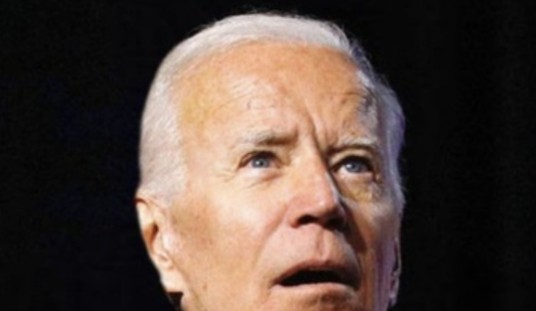The elected government of Iraq wants a timetable for American withdrawal as a condition of a security agreement, and the result could be an American withdrawal by 2011, according to a spokesman for the Maliki government. The Bush administration has thus far resisted a timetable commitment to withdrawal, but the changed circumstances may give both nations an opening for a reconceptualization of the partnership:
A deadline should be set for the withdrawal of U.S. and allied forces from Iraq, and the pullout could be done by 2011, an Iraqi government spokesman said Tuesday.
A deadline should be set for the withdrawal of U.S. and allied forces from Iraq, and the pullout could be done by 2011, an Iraqi government spokesman said Tuesday. …
But in Washington, State Department spokesman Gonzalo Gallegos said U.S. negotiators are “looking at conditions, not calendars.”
“Two things we’ve made very clear from the beginning of the process — the first is that we’re going to deal as sovereign nations working towards an agreement that satisfies both of our needs, and secondly that we’re not going to be discussing individual parts of this negotiations during the negotiation process itself,” Gallegos said.
Democrats have begun licking their chops over this development. Harry Reid said that Democrats wanted timetables all along, and that he welcomes Iraqi agreement on this point. However, the call for timetables in 2004-6 are hardly analogous to the situation today — when timetables have begun to make more sense.
Reid is being disingenuous in his statement. Democrats wanted timetables for withdrawal in order to surrender in Iraq, not after Iraqi security and stability had been achieved. Not even the Iraqis want the US out that quickly, nor on a 16-month schedule offered by Barack Obama. They want American troops to leave when they foresee their own army and internal security forces achieving the necessary strength to keep Iraq secure, internally and externally, and not before.
It’s the difference between discussing withdrawal timetables from Europe in 1944 and 1946.
Dabbagh also said that the two sides are approaching a middle ground, and that the primary concern is Iraqi sovereignty — as it should be. The Iraqis should stand on their own, but that doesn’t mean that America cannot be their partner. A security arrangement that benefits and respects both nations is in the collective interest, and we should applaud Iraqi efforts to establish themselves as an independent and stable nation capable of its own defense.
The reason we eschewed timetables in the past is to keep terrorists of all stripes from using a withdrawal to topple the Baghdad government. That situation has passed, and by 2011 will be a faded memory. Once we have cleared Mosul and its environs of al-Qaeda and ensured that the militias have disbanded or run out of Iraq, we will have transitioned to a peacetime presence, and timetables do not carry the same strategic and tactical risks, especially in the longer timeframes mentioned in this negotiation.
Rick Moran makes the point here:
The Iraqis want our combat forces to leave in an orderly fashion by withdrawing troops using a timetable that will be mutually agreed upon. What’s not to like in this?
Well, if you’re President Bush or John McCain, you have a political problem in that you have opposed a timetable being attached to our withdrawal for years. But that was Democrats setting arbitrary timetables not the sovereign nation of Iraq giving their problematic allies a graceful way to exit with honor and a true “Mission Accomplished.”
Saddam is gone. His WMD programs are history. The Iraqi army has proven in Basra, in Sadr City, and most especially in Mosul that they are capable of handling the security of the country (internal). The police – while still a large problem as far as corruption – performed quite well in Mosul also.
Just what is it we are still needed for?
I’d say the Iraqis will need American military assistance for logistical support and training for the next several years — but it won’t take 135,000 troops to complete that mission. We also could use our forces there to assist in badly-needed infrastructural improvements, a mission that would strengthen the bonds of friendship between Iraq and the US and make democracy much more stable. That also would take a lot less than 135,000 troops. Rick suggests 20,000 or so, which I think is an underestimate, but it wouldn’t take an order of magnitude more than that.
We accused opponents of the war of being unrealistic when they demanded a timetable for withdrawal before victory was achieved. Politically, at least, it’s unrealistic of mission supporters to remain obstinately opposed to timetables after the victory has been secured. In the end, we have to respect the wishes of the Iraqis if we want them to be true partners in the region. Thankfully, they have the strength to be just that, thanks to the tenacity of the Bush administration.








Join the conversation as a VIP Member